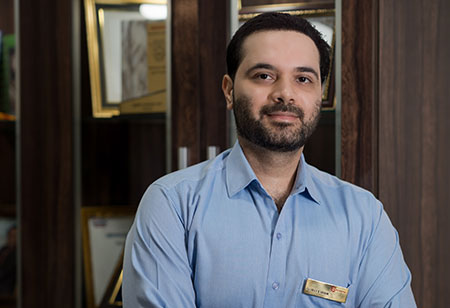
Samrat has been associated with Super Screws for over 17 years now and played a significant role in formulating efficient business strategies for the company that have led to its humongous success so far.
In a recent conversation with Industry Outlook, Samrat shared his insights on various aspects pertaining to the current manufacturing sector in India, with a focus on fastener manufacturing segment.
Automation has been witnessing widespread acceptance in recent times in terms of manufacturing technologies. The IoT of Things or Industry 4.0 is here to empower fastener manufacturing with a better capability, proficiency and quality. There is indeed a huge capital investment associated with procuring automation technologies. However, there is no doubt that its benefits bring-in handsome rewards for the organization in the long run. Today, automation is no more an option, but a norm for all manufacturing companies to optimize their entire operations. On the other hand, automation is not restricted to only hardware functionality. The availability and emergence of new technologies lately has further enabled AI-led monitoring to be more effective and offers a next level of information management system on a realtime basis.
There are two dominant trends that have emerged post thee covid pandemic. First is self-sustainability; which is one of the topmost requirement for the Indian manufacturing sector today. Self-sustainability in fastener manufacturing industry is not limited to procurement of machinery or raw materials from abroad. It is the complete immaculation of the manufacturing chain by utilizing the best possible resources from within India for the entire manufacturing process - right from design, till the development of thee ends product. Additionally, being self-sustainable enables organizations to withstand any challenges or crisis across the globe. Secondly, for any manufacturing sector to sustain and withstand the challenges, it is imperative that they are fully knowledgeable about their manufacturing process as well as their global supply chain. Also, the manufacturing industry leaders must be well-updated with the latest developments across the globe across various verticals.
Although the product cycles remain the same across all segments, particularly in Indian market, there are seasons of peak demand particularly from Q2-Q3 each year. This period is marked as that of very high demand for all industries, especially electronics and automobile. Yet in the industry framework, any enhancement in manufacturing is well taken care of through accurate planning. Also, wherever there are OEM orders, as a standard practice, an ideal stock proposition of 3-4 weeks rolling and entry is always maintained to cater to any sudden upsurge in demand.
ESG is much more than what people understand fundamentally. ESG and carbon neutrality are the two top dominant requirements for any manufacturer across the globe. Also, an increasing number of companies shifting towards alternative energy sources such as solar or wind energy for their power requirements in the manufacturing plants. The geographical positioning of our country is perfectly suitable for taking massive advantage of solar energy. Being an energy deficit nation today, India is poised to be one of the biggest green energy exporter in the world by 2035. However, this cannot be achieved by just switching to hybrid energy mode; business across all industries must embrace solar and wind energy on a large scale.
The demand cycles have really changed lately, wherein the conventional rule book of marketing does not work in today's dynamic business scenario. The fastener manufacturing industry today is evolving greatly and developing lighter, stronger and technically superior products. This has been the major demand from our customers, and their preference today is more towards products manufactured via automated production lines.
We use cookies to ensure you get the best experience on our website. Read more...